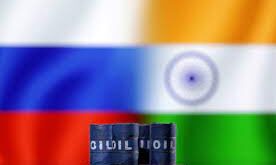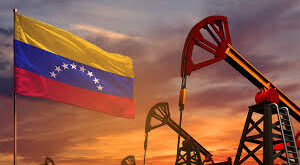After the deal with OPEC. Russia’s energy minister is now as closely watched as his Saudi counterpart
When they meet. they often drive in the same car. When they make a visit together. they tweet the world smiling selfies.
And when Alexander Novak. the Russian energy minister. and Khalid Al-Falih. his Saudi counterpart. speak they exchange so many pleasantries that oil investors talk about a “bromance.“
While neither man is the ultimate arbiter of oil policy in his country. the blossoming relationship between them has helped to deliver an unprecedented period of cooperation that is re-shaping the global oil market and energy geopolitics.
For Al-Falih. the spotlight is natural. But for Novak it is all new: The soft-spoken. poker-faced Russian has now become one of the key voices in global oil markets after Moscow joined forces with OPEC to cut production and lift prices. His role is likely to become even more important over the coming months as the market’s focus shifts toward a possible exit from the cuts.
“We now have to literally parse every Novak word—he has become the enigma.“ says Helima Croft. global head of commodity strategy at RBC Capital Markets LLC and a former analyst at the Central Intelligence Agency. “Having that role in this market makes him one of the most visible Russian officials.“
Within Russia. Novak is seen as a consummate technocrat: intelligent and hard-working. a shrewd implementer of the Kremlin’s policies in the face of often challenging domestic and international energy politics.
“Novak is a bureaucratic fighter.“ said Alexey Kudrin. a prominent economic liberal who hired Novak to be his deputy at the finance ministry in 2008. “He is one of the most promising people in the government—very smart. level-headed and diplomatic.“
The Russian energy minister demonstrated those qualities at the last OPEC meeting in Vienna. when the cartel agreed to extend output cuts to the end of 2018.
Novak was a key driver of the push for Libya and Nigeria. whose surging production earlier this year helped to crash oil markets. to agree to cap their output. according to people familiar with the discussions. He even used Russia’s political ties to help the negotiations with the two countries. That’s unusual: The issue would traditionally be resolved within OPEC. as both countries are members. without the involvement of outsiders.
The deal “wouldn’t have been possible without the personal leadership commitment and hard work of his excellency Alexander Novak.“ said Al-Falih after the meeting in Vienna.
Novak’s emergence as the face of Russia’s OPEC negotiations contrasts with his relatively low profile at home. where his influence is outstripped by the big beasts of the energy industry including Rosneft PJSC boss Igor Sechin and Gazprom PJSC head Alexey Miller. When Saudi Arabia last tried to reach a deal with the Russians in 2014. it was Sechin who led the negotiations. The talks collapsed.
Russia’s ultimate decision-maker on OPEC is not Novak. but Vladimir Putin. the president. whose call with Saudi King Salman bin Abdulaziz on Nov. 21 sealed the agreement to extend the cuts. It was not Novak’s initiative but the Kremlin’s to start the talks with Saudi Arabia that led to the landmark deal to cut production in late 2016. say people familiar with the matter.
Nonetheless. Novak’s methodical approach and toughness as a negotiator has won him favour with the Russian president. giving him sway to negotiate with OPEC and implement the cuts deal in the face of reluctance from some of Russia’s powerful oil bosses. It may also stand him in good stead in the political reshuffle in Moscow expected after Putin begins his next presidential term in May.
“The perception I get of him is that he’s pretty highly thought of.“ said James Henderson. a long-time observer of the Russian energy industry at the Oxford Institute for Energy Studies. “The Russians feel pretty good about the way they’ve handled things in the past 18 months.“
Novak’s steely negotiating style may have some of its origins in his upbringing. The son of a worker in a metals plant. he was born in Soviet Ukraine but grew up in Norilsk. a bleak mining city 200 miles (322 kilometers) north of the Arctic Circle. where in winter temperatures can drop to minus 50 degrees Celsius and the sun disappears for six weeks straight.
Novak. who is now 46. got his first job aged 17 in the plant where his father worked. Within seven years. he had a degree and had progressed from metalworker to finance manager at the plant.
By this time he had caught the eye of Alexander Khloponin. then general director of MMC Norilsk Nickel PJSC. Russia’s largest mining company. He was promoted to deputy mayor of the city of Norilsk. and when Khloponin became regional governor. Novak followed as his deputy in charge of finance.
In 2008. he moved to Moscow as deputy finance minister. Kudrin recalled that Novak worked on subsidies for the energy sector: “He could argue his position in front of political heavyweights like Sechin. who was then deputy prime minister.“
Novak owns two BMW luxury touring motorcycles. according to a government filing. and sometimes used to arrive at the finance ministry on a bike.
According to people who know him. Novak is a patient yet stubborn negotiator who’s always totally on top of his brief.
Since becoming energy minister in 2012. he has hired a team of young Russians from the private sector. including Morgan Stanley’s oil analyst to run a new analytic center. That has helped Novak build his own analysis of the impact of the cuts deal on the oil market. while Morgan Stanley alumnus. Pavel Sorokin. has helped sell the deal to the market by briefing analysts and investors.
He has proved himself a competent envoy in tricky negotiations from the OPEC talks to negotiations with Kiev and the European Commission over gas sales to Ukraine in the midst of a Russian-backed war in the country’s east.
Yet he has been cautious in addressing the big issues in the domestic Russian energy sector. from the inefficiencies at state gas giant Gazprom to the growing dominance of Rosneft in the oil sector.
Ildar Davletshin. energy analyst at Wood &. Co.. praised the energy ministry for “really good“ coordination of the cuts deal with OPEC. but added that there had been fewer domestic successes. “The gas industry has not seen much change.“ he said.
Novak’s own relationship with OPEC got off to a rocky start. At a watershed meeting in Doha in April 2016 Novak publicly committed to a deal. only to see his then Saudi Arabian counterpart Ali Al-Naimi pull out at the last minute.
“Some countries from OPEC changed their positions in the morning.“ Novak said in frustration.
Things have gone more smoothly with the next Saudi minister. Much like Novak’s position in Russia. Al-Falih—a former chief executive of Saudi Aramco who was appointed energy minister in May 2016—does not set Saudi Arabia’s energy policy. but is charged with delivering it on behalf of crown prince Mohammed bin Salman.
The warm relationship between Novak and Al-Falih is not just for public consumption. according to people who know both men. They talk regularly on Whatsapp. and have spoken by phone late into the night to negotiate key details of the deal. They spent most of a ministers’ dinner on the Wednesday before the most recent OPEC meeting talking to one another. one person present said. That’s in spite of the fact that they don’t share a common language: Novak. who learnt German at school. isn’t a confident English speaker.
In June. when Russia plays Saudi Arabia in the opening game of the World Cup just days before the next OPEC meeting. Novak and Al-Falih will probably once again be sitting side by side—another appearance by the double-act managing the global oil market.

 Iran Energy News Oil, Gas, Petrochemical and Energy Field Specialized Channel
Iran Energy News Oil, Gas, Petrochemical and Energy Field Specialized Channel



